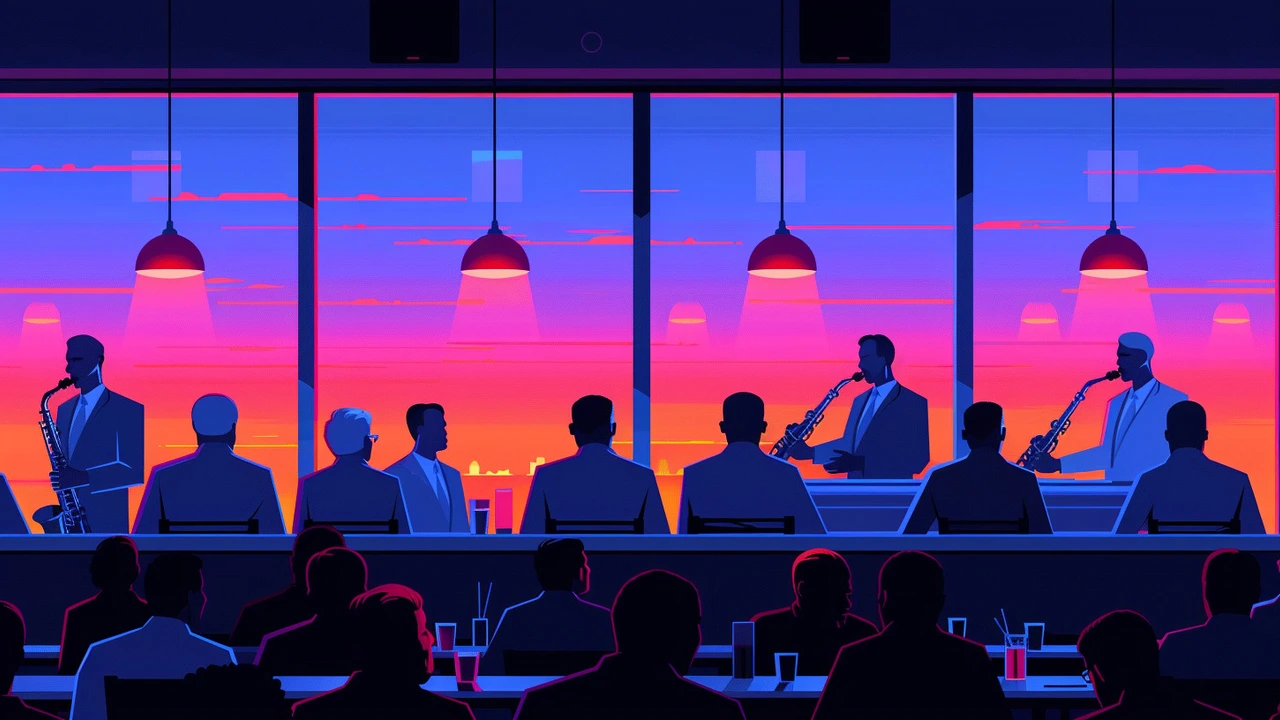The Deep Roots of Jazz Music
Oh, we have a long history here with Jazz - a genre of music that is as diverse and deep-rooted as the society from which it sprang. Born out of a beautiful confluence of African and European musical traditions, Jazz was the soundtrack to many a rebellion, many a movement, many a moment. It's not just a genre of music; it's a culture, a way of being, a philosophy, and a lifestyle that has shaped and molded every facet of our society. But hey, don't take my word for it! Let's embark together on this heady jazz-filled journey, shall we? Get ready for the ride of your life as we dive deep into the unmistakable impact of Jazz music on society.
Invention and Innovation in Jazz
When we talk about jazz, we aren't just talking about music. We're talking about a revolution in sound, a new way of viewing the world through innovative harmonies and rhythms. Jazz introduced the concept of improvisation to music- a radical, off-the-cuff approach to creating tunes and melodies that allow musicians to express their emotions, thoughts, and feelings in real-time. If you'll permit some hyperbole here, Jazz could be described as the heartbeat of twentieth-century innovation. And yes, I can vouch for it. I remember taking the stage at a local club years ago, nervous as all heck, saxophone clenched tightly in sweating palms. The spotlight hit, I took a breath, and just... let go. What followed was the most exhilarating, free-wheeling sax solo I've ever performed. That, my friends, is the magic of Jazz: it's all about the freedom to express, to innovate, and to make your mark.
The Social Justice Symphony
But the influence of Jazz goes beyond just musical innovation. Jazz was the symphony of social justice, a clarion call for the black community's equal rights and opportunities in America's deeply segregated society. Jazz musicians used their platform to protest racial injustice, their songs resonating with millions of people across boundaries of race, class, and geography. Just picture Louis Armstrong's trumpet cutting through the noise to tell the world that 'Black and Blue' isn't just a song; it's a statement on racial prejudice. It's Jazz with a purpose, Jazz with a message, moving society one beat, one note, one song at a time.
Musical Vibes in High Culture
Jazz faltered at societal thresholds; it didn't knock, it kicked the door wide open and entered. In an era dominated by formal and starchy symphony halls and opera houses, Jazz brought a breath of fresh air (and a funky beat) to the high culture scene. Jazz clubs burgeomed, embracing this new music with an almost insatiable appetite. Suddenly, it wasn't just about knowing your Bach from your Beethoven anymore; it was about knowing your Armstrong from your Ellington. The world of high culture was irrevocably disrupted, and we have Jazz to thank for that.
The Global Language of Jazz
Jazz transcends borders; it's the universal language. In its journey across continents, Jazz has influenced and been influenced by local music, creating a global jazz diaspora that competes with the clarity of Babel. Whether it's the passionate Latin jazz that incorporates Afro-Cuban rhythms, or the subtle yet haunting Nordic jazz, each iteration has its unique flavor while retaining the original Jazz's central characteristics. It's as if Jazz, in its uniquely adaptable way, chose to become a citizen of the world.
Jazz in Popular Culture
Pop culture - that erratic, ever-changing beast has seen its fair share of trends and fads. But Jazz, oh Jazz, is no passing fad. It's here to stay. You see, much of the music we know and love today - from Rock 'n' Roll to hip hop, owes a significant debt to Jazz. The use of blue notes, improvisation, swing notes - it's all there, a vibrant testament to Jazz's enduring popularity. Consider how musicians like Kendrick Lamar ingeniously incorporate jazz elements in their music, breathing fresh life into the genre, or how La La Land rekindled our love for Jazz.
Jazz and its Impact on Individuality
Jazz is personal. It's about being authentic, about being courageous enough to stand out from the crowd, to be different. The Jazz musician breaks free from the constraints of a strict musical structure, daring to innovate, improvise, and above all, to be themselves. So, in a way, Jazz is a celebration of individuality. It's a reminder that in a world where we are often pushed to conform, it's okay to break the mold, to do our own thing.
Life Lessons from Jazz
And finally, ladies and gentlemen, Jazz teaches us life lessons. It's more than just a genre of music- it's a way of living. From Jazz, we learn to improvise, to adapt, to overcome. From Jazz, we learn that sometimes, it's okay to make mistakes, that it's okay to stray from the plan. Above all, Jazz teaches us that life, like music, is best when there's room for a little improvisation. Wasn't it Charles Mingus who famously said, "Making the simple complicated is commonplace; making the complicated simple, that's creativity"? This, my friends, is the magic of Jazz. A magic that extends beyond music, that is inextricably woven into the very fabric of our society, whether we realize it or not.
And that, in some not-so-concise terms, is the undeniable, unmistakable impact of Jazz music on society. So here's to Jazz- to its past, its present, its future. Here's to the revolutions it sparked, the lives it touched, the change it fostered. Long live Jazz!

